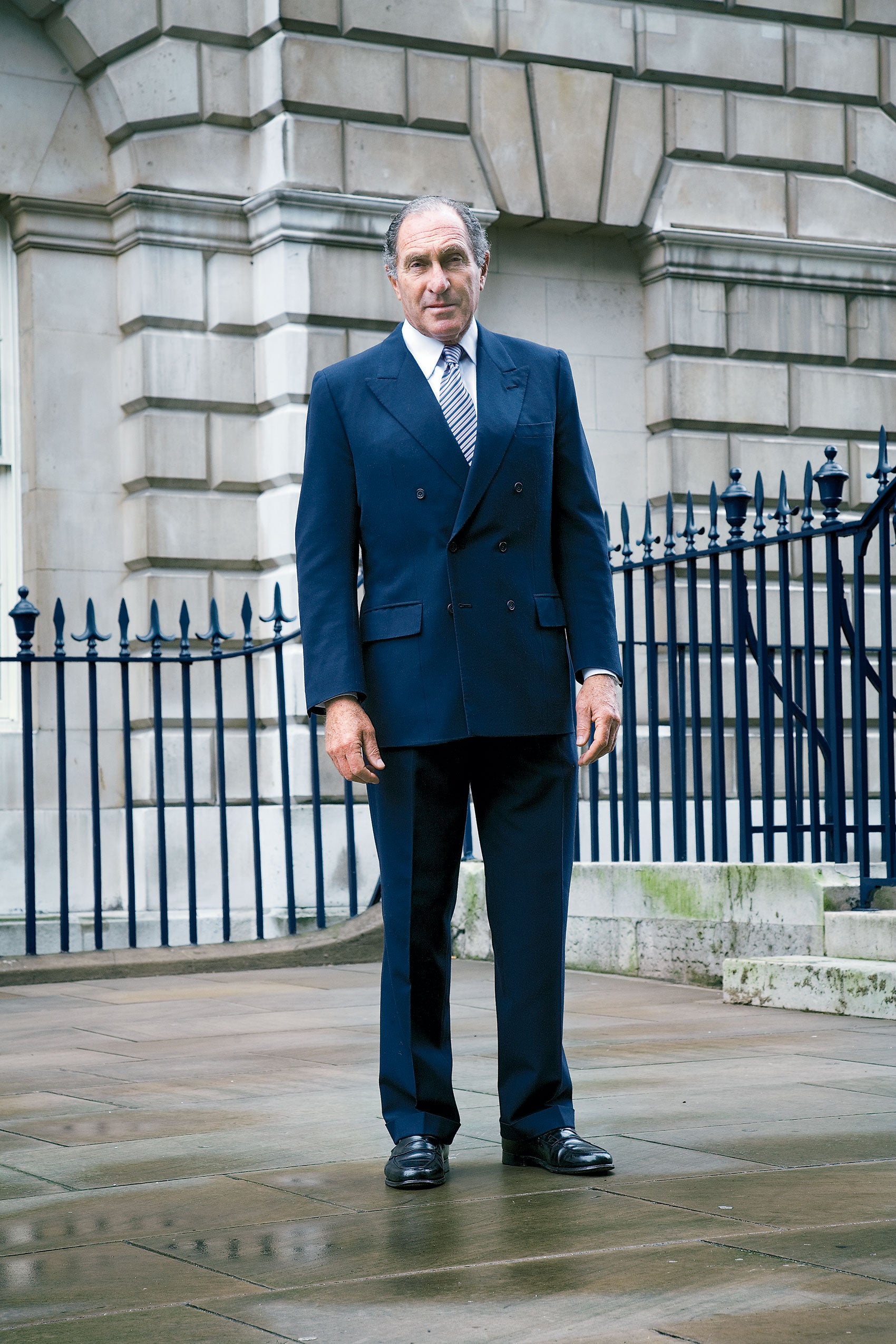Corporate governance—against apartheid
Tony Bloom LL.M. ’64 is the former chairman and CEO of The Premier Group, which grew from a small business founded by his family at the turn of the last century into one of South Africa’s largest industrial companies. Since 1988, he has been a London-based investor, and also a director and manager of several major businesses. He is a member of the HLS Dean’s Advisory Board.
How did your family settle in South Africa and build one of the region’s major enterprises?
They came from Lithuania to escape the persecution of Jews, started off as peddlers, and then got into selling animal feeds, then the milling business, and it grew from there. The company was listed on the Johannesburg Stock Exchange in 1913, and then control passed to an English company in 1963, while I was at Harvard.
You went from the University of the Witwatersrand to HLS. What was that like?
Harvard was a life-transforming experience—the intellectual rigor, the brilliance of the faculty and the students. I had Dean Griswold for tax, Louis Loss, David Herwitz and Dean Vorenberg, among others. I used to audit Kissinger’s lectures on defense policy at the college. For somebody who came from a provincial backwater, it was mind-blowing.
Did you ever have doubts about going back to South Africa?
I thought about it, but I had always intended to go back and practice law there. My family were all there. I practiced at a firm in Johannesburg after Harvard, and was made a partner, but then I was persuaded to join the company that had belonged to my family. I started as its legal counsel and moved up through the ranks.
How did you deal with apartheid in your business?
I never accepted the basis for apartheid. Everybody says that today, but I think there are enough public records to demonstrate that I didn’t. I had a deep dislike of discrimination, which affected every facet of life in South Africa. So, we were one of the few companies to employ political detainees after they were released. We supported the families of people who were up on treason charges. My annual chairman’s report used to call for repeal of discriminatory legislation and call upon the government to open up negotiations with black trade unions and black leaders.
In 1985, you went to Zambia to meet with exiled leaders of the African National Congress. What happened?
Five of us made a secret trip up there, to a game farm in the bush, to meet with the ANC, which was banned at the time. But it leaked, and created a major stir, and was viewed as virtually treasonable. The state president, P.W. Botha, was incandescent with rage. Didn’t do anything in particular, other than rail against us, but I was subjected to a deluge of hate mail, and it got bad enough that I had to have a bodyguard.
How much of a role did lawyers play in chipping away at apartheid?
There were some high-profile barristers who were magnificent in constantly attacking the government. George Bezos, who’s a huge unsung hero, gave endless time to defending people who were up on various charges. There were challenges to the legislation. And of course, Richard Goldstone, when he was a judge, delivered some very courageous judgments.
And the banned leaders you met with in Zambia—are you still in touch?
Yes. Thabo Mbeki, for one. I used to see Thabo a lot, but when he became state president, I put it on ice. I’m sure Thabo would see me anytime over a cup of tea, but he’ll be looking at his watch and have six appointments waiting. So, when he’s no longer president, I’m sure we’ll pick up again. We became very good friends.
